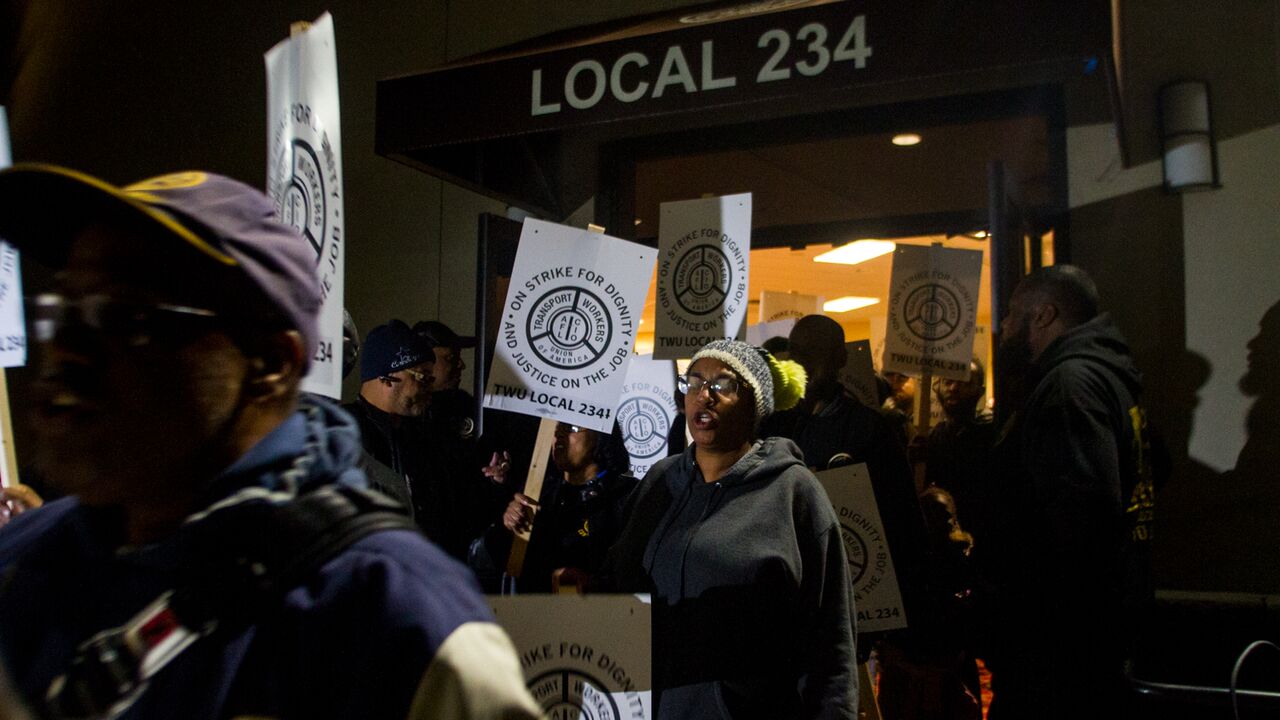SEPTA Strike negotiations take turn for the worse; SEPTA “beyond frustrated” with union

Earlier in the day, U.S. Rep. Bob Brady was hopeful.
“As long as they’re talking,” said the famed Philly deal maker as he walked into the lobby of the Sheraton where the strike negotiations have been taking place. “That’s the most important part… when you’re talking you can always get something done.”
But shortly before 11 p.m., SEPTA Chairman Pasquale Deon Sr. issued a strongly worded statement that accused Transport Workers Union Local 234 of negotiating in bad faith.
“Too much is at stake for either side to fail to fully engage in the negotiating process,” Deon wrote. “SEPTA negotiators have been working tirelessly to get a deal done, and we’re asking TWU leadership to do the same—for the sake of their members, and the people who rely on them every day to safely get them where they need to go.”
Until Deon’s statement, SEPTA had mostly stuck to a hopeful tune throughout the settlement talks, whereas TWU adopted a more aggressive stance. But late Wednesday night, the two sides switched positions.
“We’re beyond frustrated,” said Fran Kelly, SEPTA’s assistant general manager for government affairs. “We know there is an urgency here. We don’t have time.”
Kelly accused the union of prolonging the strike.
A TWU representative called the allegations “ridiculous.”
“To accuse us of not bargaining in good faith is disingenuous,” said the union rep.
“I don’t know if they are overtired or what, but they are just in error,” he added. “There is bargaining still taking place.”
In the statement, SEPTA said they had largely acquiesced to the union’s primary demands.
Pensions had seemed to be the most important issue. “They’re really talking about the pension piece,” said Rep. Brady. “That’s the real piece.”
When asked Tuesday what the most important issues were in the negotiations, Philadelphia Deputy Mayor of Labor Richard Lazer replied “Pensions, pensions, pensions.”
According to SEPTA’s statement, management conceded to the union’s retirement requests, agreeing to “remove the current compensation cap and enhance the pension benefit by 8 percent.” Union retiree benefits currently max out at $30,000-a-year.
SEPTA also said it would increase wages to bring the average TWU member’s earnings from $68,100 to $76,200 over five years.
In exchange for that, SEPTA wanted increased employee contributions to the health care plan. Under the current labor agreement, TWU workers pay 1 percent of their pre-overtime wages, or an average of $46 per month. SEPTA proposed incrementally increasing those payments over the new agreement’s five year term to $164 per month.
According to Kelly, TWU responded to that proposal by demanding concessions on previously unmentioned concerns. “Are they being serious about negotiations? I think not.”
“The union was all about the pensions redesign and we responded,” said Kelly. “Now, within hours of giving them what they wanted there, they turn around and say they care about cameras.”
By that, Kelly means cameras on the buses and trolleys that record operators’ interactions with passengers. According to Kelly, the union wants to limit the amount of video those cameras will save around a so-called “tagged” incident—an event like an accident or fight that would require documentation. Kelly said that the union wants to limit the taped time around such events to five minutes for minor tagged incidents and ten minutes for major incidents.
The recordings can be used to discipline vehicle operators. In newsletters to its membership over the summer, though, TWU seemed torn on video evidence: “It can be used as evidence of wrongdoing by an operator, but it can also be used in the operator’s favor.”
In its statement, SEPTA publically asked TWU to suspend the strike for Election Day. Kelly said that SEPTA would seek an injunction Thursday if TWU would not budge. Before the walkout, TWU President Willie Brown pledged the union would remain on strike until a deal was done, no matter what, including Election Day. “Once we’re on strike, we’re on strike,” he said.
Deon’s statement came as a surprise. The two sides returned to the negotiating table around 5 p.m. Wednesday. Earlier in the day, Pa. Rep. Dwight Evans spoke with representatives from the union and SEPTA and reported progress. U.S. Rep. Brady did the same. Hours later, SEPTA issued its forceful statement.
Brady was sitting just a few feet away from this reporter when SEPTA issued their statement. Kelly called PlanPhilly moments later. Hearing the commotion, he asked what was happening. Still on the phone with Kelly, this reporter handed the Congressman his laptop so he could read the e-mailed statement.
After hanging up with Kelly, PlanPhilly walked back over to the Congressman and his laptop. Brady was still reading the statement and shaking his head.
“I don’t know why he’s doing that,” he said.
WHYY is your source for fact-based, in-depth journalism and information. As a nonprofit organization, we rely on financial support from readers like you. Please give today.



